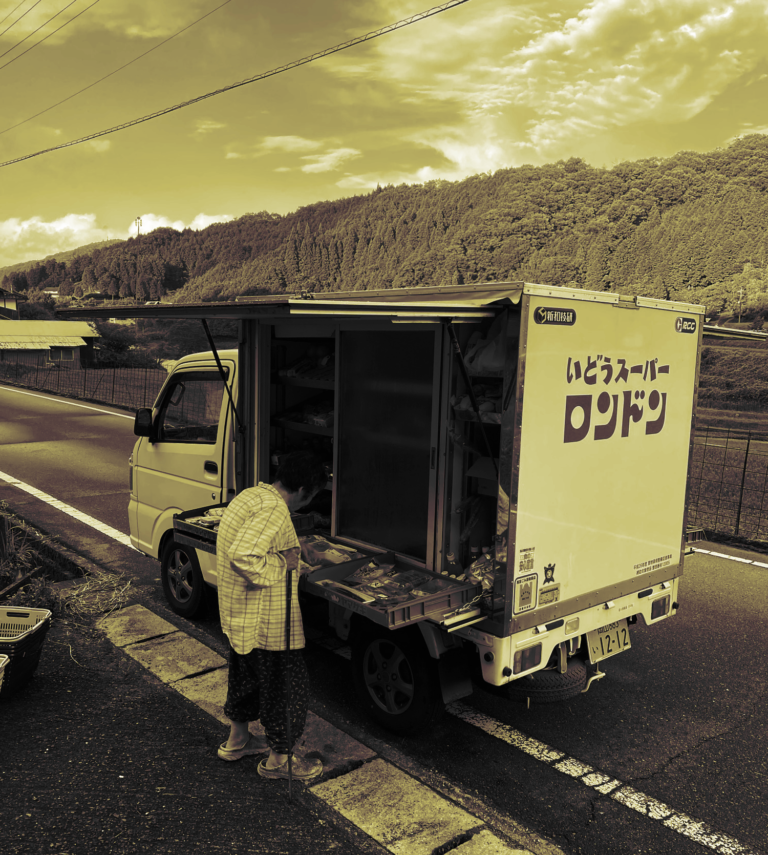KEN NARITA.
restaurant owner. mobile market founder. Japan Harvest founder. council member. OKAYAMA.
what food is.
When we think about what food means to us, it is more than just a means of survival—it is deeply intertwined with human history. In primitive times, food was essential for survival. Through hunting and gathering, people shared food, supporting the survival of their families and communities. Back then, food was simply a way to sustain life, and eating was an act of ensuring survival. But food also strengthened communal bonds, rituals, and beliefs. Sharing meals reinforced roles within the community and deepened connections.
As agriculture developed, food became a stable resource, evolving from a mere survival tool to a crucial element of commerce and the economy. Particularly after the Industrial Revolution, food production and distribution became more large-scale, and food’s role as a means of economic gain became more pronounced. Food production, distribution, and processing became major industries, complicating the economic landscape surrounding food. This shift also altered the perception of food—from a basic nutritional necessity to a commodity with commercial value and profit potential.
In modern society, food remains a vital pillar of the economy, enriching our lives. However, it represents many challenges as well.
I was born in 1978 and my journey into understanding the profound importance of food began when I was sixteen. I was diagnosed with a severe illness and underwent chemotherapy, during which I couldn’t eat for extended periods of time. My mother would make fresh juice from carrots and apples every morning and evening, which became my lifeline, giving me the strength to continue my treatment. This experience taught me that food is not just about nutrition—it also provides love, hope, and comfort.
Not everyone has the privilege of experiencing such warmth and care in their meals. Children who grow up without regularly eating their mother’s home-cooked meals or those who have had limited access to food often face significant psychological and emotional challenges. Food, as more than just a physical necessity, plays a crucial role in emotional and mental well-being.
This does not only relate to the food we eat at home, but also what and how we eat when we are outside.
In the last decades, we have seen changes in hospitality whereby large corporations have optimized their business models, improving their profitability by providing consistent meals made in central kitchens and delivered to each branch with uniformity. Often, however, they fail to deliver quality and miss the personal touch, care, and the warmth of a home-cooked meal. In my experience, a thriving restaurant maintains a personal connection to its customers as well as suppliers and producers.

In my region, the nearest supermarket is twenty-five kilometers away, a forty-minute drive, making it incredibly challenging for many elderly people to shop. One elderly gentleman living in the area, for example, relies on a mobile market service to buy all his food for the week, which includes instant noodles and pre-packaged meals. Having regular access to food has stabilized his blood pressure and improved his overall health, much to the surprise of his doctor.
Research shows that limited access to food can lead to increased mental stress, which negatively impacts health, whereas food security improves mental stability, reducing risks like high blood pressure and heart disease. The peace of mind that comes from knowing you can access food is a critical component of overall well-being.
Should we not plan beyond companies’ convenience, taking into account the social and not just commercial nature of food? Should we not preserve the role food has to play in bringing joy, connecting communities, and fostering hope for the future?
We are aware of the challenges of food inequality, access, and economic disparity—many people do not have access to food, while a significant proportion of food is wasted. Should we not increase the number of food rescue organizations, for example?
These organizations focus on rescuing fresh produce, such as fruits and vegetables, and deliver them to those in need, providing them with nutritious food. This is a stark contrast to the shelf-stable and instant foods typically distributed by food banks. I believe that, particularly in my country, it is necessary to introduce a new standard for food rescue—inspired by organizations in the UK, Germany, Denmark, and Australia—ensuring that nutritious food reaches the people who need it most.
I believe it is imperative to maximize the potential of food to tackle these societal challenges, to enrich people’s lives and help build a better future—one meal at a time.